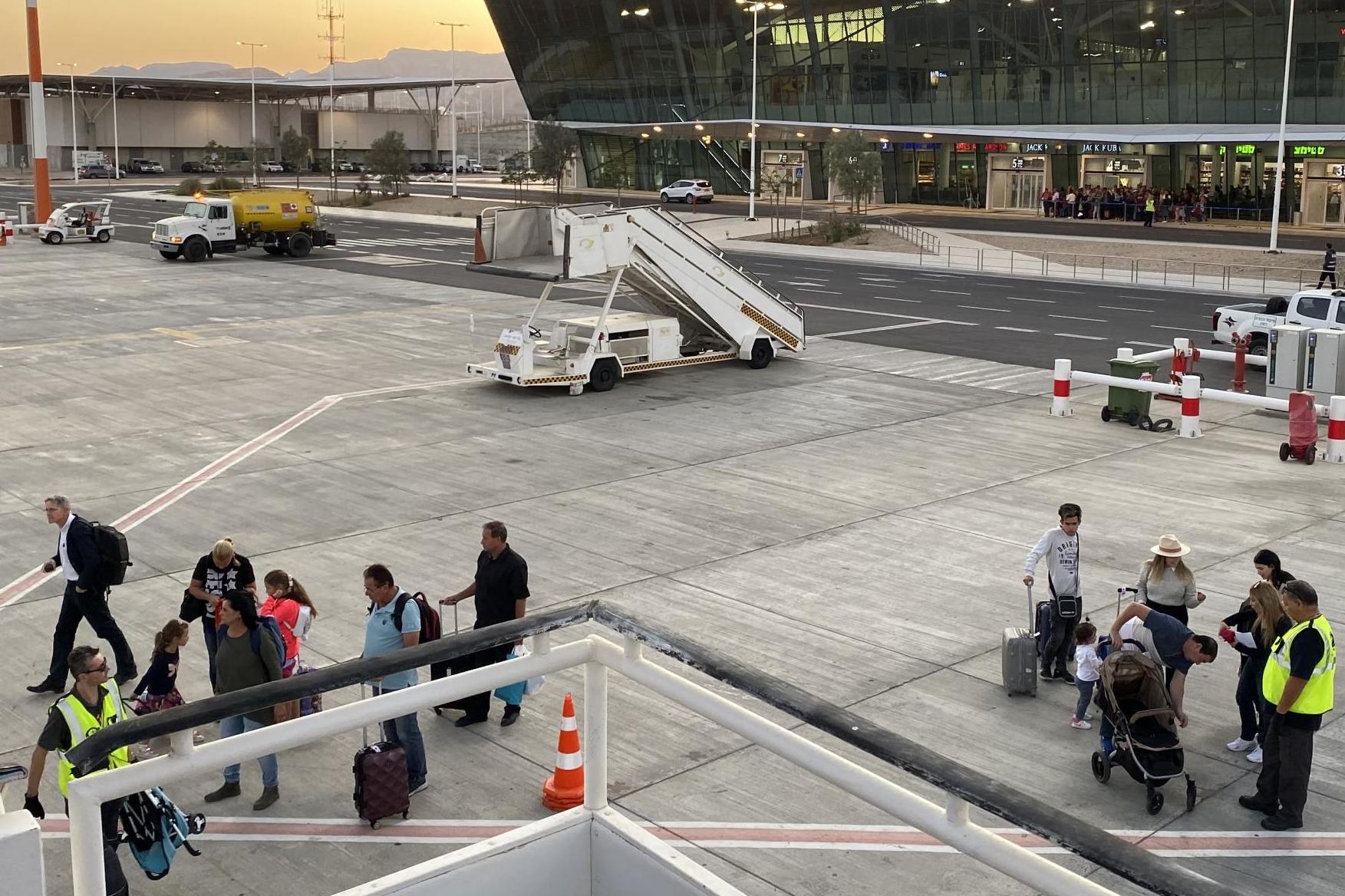Why instinct can trump technology when it comes to airport security
The Man Who Pays His Way: You are temporarily assumed to be an evil terrorist until you tick certain boxes

Your support helps us to tell the story
From reproductive rights to climate change to Big Tech, The Independent is on the ground when the story is developing. Whether it's investigating the financials of Elon Musk's pro-Trump PAC or producing our latest documentary, 'The A Word', which shines a light on the American women fighting for reproductive rights, we know how important it is to parse out the facts from the messaging.
At such a critical moment in US history, we need reporters on the ground. Your donation allows us to keep sending journalists to speak to both sides of the story.
The Independent is trusted by Americans across the entire political spectrum. And unlike many other quality news outlets, we choose not to lock Americans out of our reporting and analysis with paywalls. We believe quality journalism should be available to everyone, paid for by those who can afford it.
Your support makes all the difference.In the 1970s the Israeli national airline was a prime target for terrorists. They tried several times to down El Al aircraft by duping young women into unwittingly transporting bombs onboard. On two occasions the devices failed to detonate and were discovered on arrival in Israel; on a third, a bomb exploded aboard a Rome-Tel Aviv flight but the plane landed safely.
In response to the threat, the Israeli authorities started “profiling” passengers to identify those with unusual circumstances or demeanour.
At Heathrow in 1986, a passenger named Anne-Marie Murphy was booked on an El Al flight to Tel Aviv. A single, pregnant woman travelling alone to Israel raised suspicions. She had checked in a case in which her Palestinian lover had concealed 1.5kg of high explosives. Nezar Hindawi intended to murder everyone on board, including their unborn child.
As I discovered when passing through the shiny new Ramon airport in the deep south of Israel last weekend, the country still takes security extremely seriously,
Every new arrival or departure undergoes a line of questioning that may intrigue, irritate or unnerve.
A mandatory pre-flight interview takes place before check-in, at one of dozens of desks arranged loosely in a square. For most of us, it is the closest we will get to a criminal interrogation.
Questions range from the highly specific (“When did you book your flight?”) to the humdrum, such as your daily routine at work or favourite football team.
“The way a passenger answers is more important than what the answer is,” says Philip Baum, visiting professor of aviation security at Coventry University and editor in chief of Aviation Security International.
The screening process, he says, begins even before you enter the terminal.
“There is a profiler at every entrance to the airport building. They will stop people who do not meet baseline expectations.
“We do the same in the UK – but at customs checkpoints after people have got off a flight!”
At this time of year, most foreign visitors are on a tour of the Holy Land or seeking winter sunshine in the Red Sea resort of Eilat.
I was on my way home from Saudi Arabia, by way of Jordan.
“Who did you meet in Saudi Arabia? Have you got any pictures of where you went?”
I fondly imagined that explaining I was testing the new Saudi e-visa as part of my work would suffice to bring the encounter to a swift conclusion.
But the interviewer was merely warming up. Next, she surveyed my passport and picked on a stamp from a trip many moons ago.
“How did you get to the Seychelles?”
“I flew via Doha.”
“Why?”
“Because it was far cheaper than going nonstop on British Airways.”
“What did you see while you were in Doha?”
(Racks brains.) “The National Museum of Islamic Art and the souq.”
“What do you mean by ‘the souq’?”
For a good half-an-hour I felt I was in an exam for which I had failed to revise.
As the flight deadline approached, my responses became terse and exasperated. Which presumably fitted the right profile, because shortly afterwards I was told to proceed to check-in – and the usual security screening familiar at airports worldwide, with metal detector arch and X-ray scanner.
You know the drill. You are temporarily assumed to be an evil terrorist intent on destruction until you prove you are not carrying liquids in containers over 100ml, and tick the “laptop out, shoes off” boxes too.
But in Israel, it’s a breeze.
A bottle of water? Take it through, no need to swig it in a hurry. Israel does not fret about liquids, nor electronics in your cabin baggage.
“The system is based on a common-sense approach of identifying negative intent rather than the carriage of prohibited articles,” says Philip Baum.
Instinct can be smarter than technology.
Simon Calder has just been ranked the most influential person in travel tech, according to the 2019 Tyto Tech500 Power List. To view the full list, click here.
Join our commenting forum
Join thought-provoking conversations, follow other Independent readers and see their replies
Comments